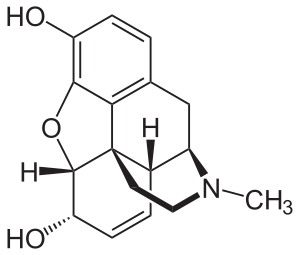Opioid Substitution Therapy
| Opioid use disorder | |
|---|---|
| Synonyms | Opioid addiction, problematic opioid use opioid abuse |
 |
|
| Molecular structure of morphine | |
| Specialty | psychiatry |
| Classification | |
|---|---|
| External resources |
Opioid use disorder is a medical condition characterized by a problematic pattern of opioid use that causes clinically significant impairment or distress. It often includes a strong desire to use opioids, increased tolerance to opioids, and withdrawal syndrome when opioids are abruptly discontinued.Addiction and dependence are components of a substance use disorder and addiction represents the most severe form of the disorder. Opioid dependence can manifest as physical dependence, psychological dependence, or both.
Opioids include substances such as morphine, heroin, codeine and oxycodone. These can be bought illegally or prescribed. The diagnosis of opioid use disorder is often based on criteria by the American Psychiatric Association in the DSM-5. These include a preoccupation with a desire to obtain and take opioids, as well as using more than intended despite social and professional consequences due to these behaviors.
Opioid use disorder can be treated with opioid replacement therapy using methadone or buprenorphine. Being on such treatment reduces the risk of death. Additionally, individuals with opioid use disorder may benefit from twelve-step programs, other peer support, and support from mental health professionals such as individual or group therapy.Naloxone is useful for the treatment of opioid overdose.
...
Wikipedia
